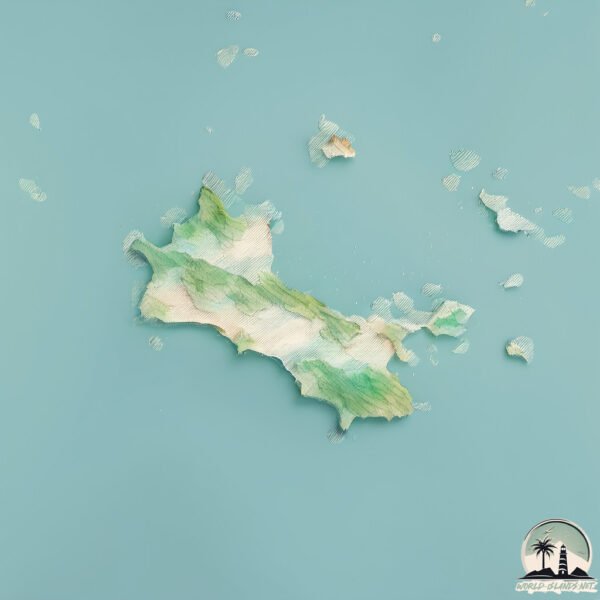Nanri Dao

Welcome to Nanri Dao, a Temperate island in the South China Sea, part of the majestic Pacific Ocean. This guide offers a comprehensive overview of what makes Nanri Dao unique – from its geography and climate to its population, infrastructure, and beyond. Dive into the details:
- Geography and Size: Explore the island’s size and location.
- Climate and Weather: Weather patterns and temperature.
- Topography and Nature: Uncover the natural wonders of the island.
- Infrastructure and Travelling: Insights on reaching, staying, and making the most of your visit.
- News and Headlines: Latest News.
Geography and size of Nanri Dao
Size: 48.6 km²
Coastline: 62.4 km
Ocean: Pacific Ocean
Sea: South China Sea
Continent: Asia
Nanri Dao is a Medium Island spanning 49 km² with a coastline of 62 km.
Archipel: –
Tectonic Plate: Yangtze – A minor tectonic plate in East Asia, often considered a part of the Eurasian Plate. It’s primarily continental and covers the Yangtze River area in China, playing a significant role in the region’s geological stability.
The geographic heart of the island is pinpointed at these coordinates:
Latitude: 25.20781034 / Longitude: 119.49552194
Climate and weather of Nanri Dao
Climate Zone: Temperate
Climate Details: Humid Subtropical Climate
Temperature: Hot Summer
Climate Characteristics: With continuous rainfall and hot summers, this climate is common in some coastal regions, supporting diverse vegetation.
Topography and nature of Nanri Dao
Timezone: UTC+08:00
Timezone places: Australia/Perth
Max. Elevation: 92 m
Mean Elevation: 20 m
Vegetation: Agricultural Mosaic
Tree Coverage: 34%
The mean elevation is 20 m. The highest elevation on the island reaches approximately 92 meters above sea level. The island is characterized by Plains: Flat, low-lying lands characterized by a maximum elevation of up to 200 meters. On islands, plains are typically coastal lowlands or central flat areas.
Dominating Vegetation: Agricultural Mosaic
A mix of cropland and natural vegetation, often seen in rural landscapes where agricultural fields are interspersed with patches of natural habitats. Nanri Dao has a tree cover of 34 %.
Vegetation: 11 vegetation zones – Exceptionally Diverse Island
Islands with more than ten vegetation zones are among the most ecologically rich and varied in the world. These islands are akin to miniature continents, boasting an incredible array of ecosystems. The sheer range of habitats, from high peaks to deep valleys, rainforests to deserts, creates a mosaic of life that is unparalleled. They are crucial for conservation and ecological studies.
Infrastructure and Travelling to Nanri Dao
Does the island have a public airport? no.
There is no public and scheduled airport on Nanri Dao. The nearest airport is Fuzhou Changle International Airport, located 78 km away.
Does the island have a major port? no.
There are no major ports on Nanri Dao. The closest major port is XIUYU, approximately 50 km away.
The mean population of Nanri Dao is 918 per km². Nanri Dao is Densely Populated. The island belongs to China.
Continuing your journey, Meizhou Dao is the next notable island, situated merely km away.
View from XiaChuan Island China
China is classified as Emerging region: BRIC: Brazil, Russia, India, and China – Economies noted for their rapid growth and increasing influence on global affairs. The level of income is Upper middle income.
News – Latest Updates and Headlines from Nanri Dao
Stay informed with the most recent news and important headlines from Nanri Dao. Here’s a roundup of the latest developments.
Please note: The data used here has been primarily extracted from satellite readings. Deviations from exact values may occur, particularly regarding the height of elevations and population density. Land area and coastline measurements refer to average values at mean high tide.
